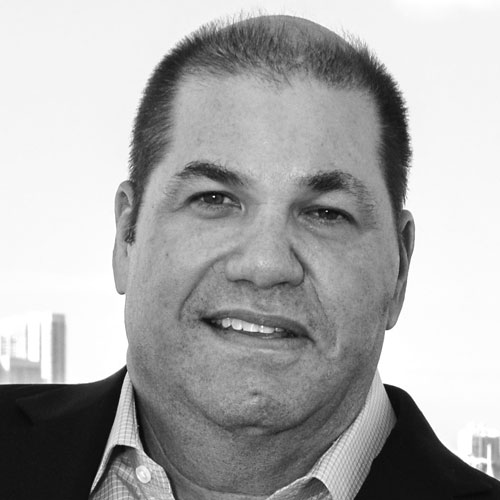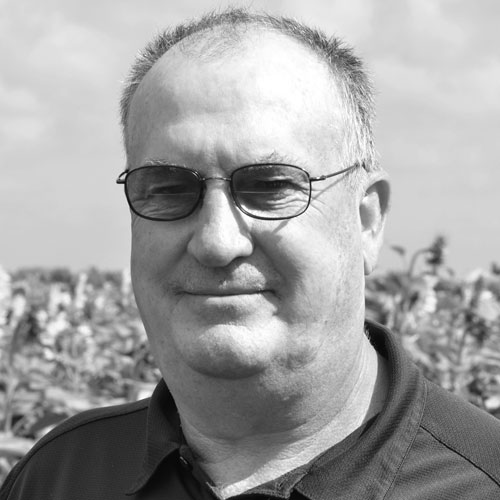Cancers are the rodents of the chronic-disease world. Although they typically start out small—a single mouse in your kitchen cupboard, perhaps—if left unchecked, they will eventually multiply until your entire home is overrun. For that reason, it’s critical to catch them early, before mouse becomes mice.
Biopharmaceutical startup Verastem believes it has found the mother of all mousetraps: drugs that can stop the spread of cancer by targeting the stem cells that are responsible for tumor recurrence and metastasis.
“When they get treated, cancer patients often do well initially,” explains Verastem president and chief executive officer Robert Forrester. “But then—maybe six months later, maybe two years later—the cancer unfortunately comes back. This time it’s even more aggressive, and patients generally don’t do so well from that point on. Why is that? If we treated them, these tumors should be long gone, right? The trouble is, existing therapies aren’t very good at killing cancer stem cells, which I call ‘tumor-initiating cells.’ These are the cells responsible for the occurrence of tumors, and they’re very good at evading conventional therapies.”
Simply put: Conventional cancer therapies can kill mice, but Verastem’s therapies patch the hole through which the mice are entering. “If you think of cancer like a weed, existing therapies are very good at removing what you can see above ground, like the flower of a dandelion, but they’re not getting the root, and this causes the devastation that cancer brings to many families,” Forrester continues. “If you don’t get the root, the weed comes back. That’s what tumor-initiating cells are; they are the roots of cancer.”
Although its drugs are still in early clinical stages, Verastem believes these drugs will fundamentally alter the cancer landscape. To make sure they do, the company is relying not only on good science, but also on good business. And a passionate cause, which is the glue that binds them. “Our mission is to change the way cancer is treated,” Forrester says. “It’s a very audacious mission, but we’re making very good progress.”
Investing in health
Audacious missions require audacious leaders. At Verastem, Forrester is that leader. At first blush, he might seem an unusual choice: he is neither a doctor nor a scientist by trade; he’s an investment banker. Following a brief career as a lawyer, he spent fifteen years working in the corporate finance groups of BZW—now Barclays Capital—and UBS, specializing in mergers and acquisitions and public and private finance transactions.
However, it doesn’t matter that Forrester has never worn a lab coat. He’s had medicine on his mind for more than thirty years. “When I was eighteen, I unfortunately lost my father. He had a brain hemorrhage. One minute he was there, the next minute he was not,” Forrester recalls. “Having that experience at a very young age inspired me to want to do something in health care at some point. I was a slow learner, so it took me some time to figure out what that would be. But I eventually got there, and that’s what I’ve been doing for the last fifteen years.”
The leap from money to medicine wasn’t as large as one might imagine. In fact, Forrester discovered a direct link between them: entrepreneurship. “I’m a Brit, but in 1990, I was sent to New York to work on Wall Street for a two-year assignment,” explains Forrester, who at the time was working for London-based BZW. “I fell in love with the United States and its ‘can-do’ spirit. I had always had an entrepreneurial urge, so I was quite taken with America’s entrepreneurial energy. It was very different from the United Kingdom.”
Forrester’s two-year assignment in New York turned into four years, at which point he came to a crossroads: he had to decide between keeping his job and returning to London, or quitting his job and staying in the United States. He chose the latter, ultimately ending up at Dutch merchant bank MeesPierson, where his job was investing the bank’s money in life-science companies.
“After about six years, the CEO of one of the companies I invested in, Coley Pharmaceutical Group, said to me, ‘Robert, it’s time you left the dark side of investment banking to come and do a real job,’” Forrester recalls. “I wanted to see if I could actually help a little company grow and be successful.”
At that moment, his innate entrepreneurial urge whisked Forrester from investment banking to pharmaceuticals. “That started me off on my career of being a biotech entrepreneur,” Forrester says. “It’s been so satisfying—and so rewarding—ever since.”
Prescription: Passion
Verastem is the brainchild of Drs. Robert Weinberg, Eric Lander, and Piyush Gupta, biologists at the Massachusetts Institute of Technology, whose groundbreaking research on cancer stem cells forms the foundation of Verastem’s drug therapies. In 2010, they started the company along with founding CEO Dr. Christoph Westphal, a serial entrepreneur and drug developer who also happens to be Forrester’s tennis partner.
“I’ve known Christoph for many, many years,” Forrester says. “One day, he said to me, ‘Robert, let’s start a really important company together.’ He described to me the work of Bob Weinberg, and I was sold.”
Forrester joined Verastem as president and chief operating officer, and was named president and chief executive officer in 2013. In both roles, he has been chief steward of Verastem’s mission, vision, and values, which he insists are just as critical to the company’s success as its research.
“What’s unique about Verastem is the way we as a company have really rallied around our mission and our core values,” Forrester says of the pre-revenue enterprise. “We have a technology that has an opportunity to really make a big difference, and every single one of us is passionate about that.”
Verastem’s core values—audacity, focus, patience, passion, and authenticity, among others—are so pivotal that the company has written them on its office walls and named each of its meeting rooms after a different one of them. Perhaps the most visible of Verastem’s core values is humility. “Humility is really important,” Forrester explains. “For instance, no one here has an office. Instead, we have an open-plan office, which is really important for communication, but also is an important reminder that we haven’t actually done anything yet. We would rather invest every extra dollar we have in patient care than on having nice offices.”
Because not everyone in pharmaceuticals is humble, finding employees who are the right cultural fit is critical. “It all starts with hiring,” Forrester says. “You have to have the right skill set, and you have to have the right experience, but in many ways I’m much more interested in hiring someone who is authentic, humble, and passionate.”
Passion is particularly important. “We want to do the most important work of our lives, and in order to do that we have to have team members who absolutely have a passion for our mission,” Forrester continues. “If one of our employees loses their passion, I’ve made it absolutely clear that they should leave the company. I will help you find somewhere else to go, but why waste time in life on things you’re not passionate about?”
“A Terrible, Terrible Tumor”
Among the things Forrester is most passionate about is mesothelioma, a rare and aggressive cancer affecting the lungs of those who have been exposed to asbestos. “Mesothelioma is a terrible, terrible tumor,” Forrester says. “It’s a tumor that you’d think would be fading away—because it’s hard to imagine that anyone would continue to use asbestos in this world—but that’s unfortunately not the case.”
Although asbestos is prohibited for construction in the United States, there are still as many as 3,000 new mesothelioma patients across the nation every year. “It can take ten, twenty, thirty years for the tumor to grow, but from the moment patients are diagnosed to the moment they die is only about twelve months, so it’s a very aggressive disease,” Forrester explains. “There is only one drug approved for mesothelioma, called Alimta. It was first approved twelve years ago for mesothelioma and subsequently was approved for non-small cell lung cancer. It’s now the fourth- or fifth-biggest grossing cancer drug in the world, so there’s clearly a big need.”
Verastem plans to meet that need with its anticancer stem-cell drug, which is currently undergoing trial in twelve countries around the world. “The goal is to get the drug approved as quickly and efficiently as possible, and we think we can accomplish that through mesothelioma,” continues Forrester, who says the drug ultimately could help treat much larger tumors, as well, such as ovarian, lung, and breast cancers. “The next six to eighteen months is going to be a really pivotal time for our company, and I think we could be really disruptive by adding a new approach to a doctor’s armory for treating cancer patients. It’s a very, very exciting time.”

